
Aretha Louise Franklin was an American singer, songwriter and pianist. Referred to as the "Queen of Soul", Rolling Stone twice named her as the greatest singer of all time.

Young, Gifted and Black is the eighteenth studio album by American singer-songwriter Aretha Franklin, released in early 1972, by Atlantic Records. The album climbed to number 2 on Billboard's R&B albums survey and peaked at Number 11 on the main album chart. It was quickly certified Gold by the RIAA. Its title was cut from "To Be Young, Gifted and Black", recorded and released by Nina Simone in 1969.
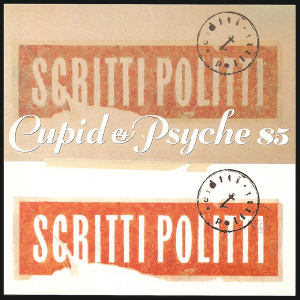
Cupid & Psyche 85 is the second studio album by the British pop band Scritti Politti, released in the UK on 10 June 1985 by Virgin Records. The release continued frontman Green Gartside's embrace of commercial pop music stylings and state-of-the-art studio production, while its lyrics reflect his preoccupation with issues of language and politics.
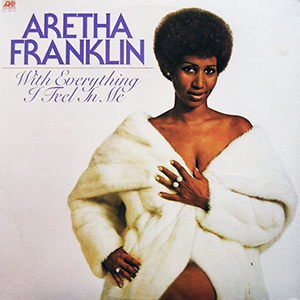
With Everything I Feel in Me is the twenty-first studio album by American singer Aretha Franklin, Released on November 25, 1974, by Atlantic Records.
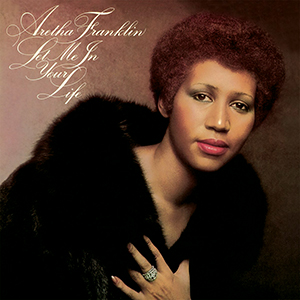
Let Me in Your Life is the twentieth studio album by American singer Aretha Franklin, released on February 26, 1974, by Atlantic Records.
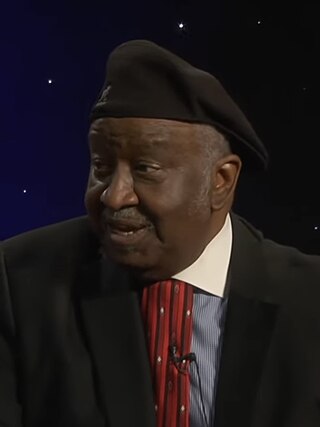
Bernard Lee "Pretty" Purdie is an American drummer, and an influential R&B, soul and funk musician. He is known for his precise musical time-keeping and his signature use of triplets against a half-time backbeat: the "Purdie Shuffle." He was inducted into the Modern Drummer Hall of Fame in 2013.
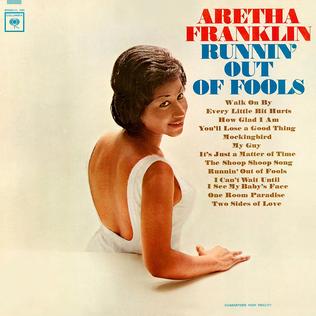
Runnin' Out of Fools is the sixth studio album by American singer Aretha Franklin, released in 1964 by Columbia Records. It was arranged and conducted by Belford Hendricks. The front cover photograph was taken by Henry Parker.
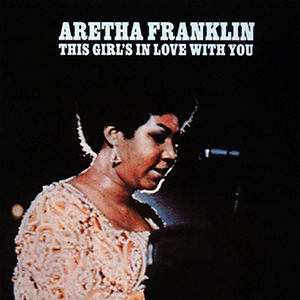
This Girl's in Love with You is the sixteenth studio album by American singer Aretha Franklin, released on January 15, 1970 by Atlantic Records. It reached Billboard's Top 20 and was reissued on compact disc through Rhino Records in 1993. Her version of The Beatles' "Let It Be" was the first recording of the song to be commercially issued. Songwriter Paul McCartney sent Franklin and Atlantic Records a demo of the song as a guide.

Roger G. Hawkins was an American drummer best known for playing as part of the studio backing band known as the Muscle Shoals Rhythm Section of Alabama. Rolling Stone ranked Hawkins number 31 on its list of greatest drummers.

Aretha is the twenty-sixth studio album by American singer Aretha Franklin. It was released on September 30, 1980, by Arista Records. This is Franklin's second eponymous album, and her first for Arista Records after a 12-year tenure with Atlantic Records.

Sweet Passion is the twenty-third studio album by American singer Aretha Franklin. It was released on May 19, 1977, by Atlantic Records. Following Franklin's Gold-certified 1976 soundtrack album, Sparkle, she paired up with Motown producer Lamont Dozier to produce Sweet Passion. It was, however, a commercial and critical failure.

Aretha is the debut studio album by American singer-songwriter Aretha Franklin, released on February 27, 1961, by Columbia Records. It features the Ray Bryant Combo. The album is Aretha's first release for Columbia, and is also known under its working title Right Now It's Aretha. Following in the footsteps of her close friend Sam Cooke, Aretha was "discovered" by famed Columbia Records producer John H. Hammond, who on the liner notes of the 1973 edition of "The Great Aretha Franklin: The First 12 Sides" mentions that she was in fact recommended by the composer Curtis Reginald Lewis. With the support of her father, Reverend C.L. Franklin, Aretha traveled to New York City's Columbia Record Studios to record her debut album for the label. Hammond paired Aretha Franklin with Ray Bryant and arranger J. Leslie McFarland, while taking charge of the album's production, which received mixed reviews.

Laughing on the Outside is the fourth studio album by American singer Aretha Franklin, released on August 12, 1963, by Columbia Records. The album was recorded at Columbia Recording Studios in New York and Hollywood. These sessions found a 21-year-old Aretha Franklin recording Jazz and Pop music standards, from Johnny Mercer to Duke Ellington. She is backed by the arrangements of Columbia producer Robert Mersey. One of the most popular songs from the album is Franklin's interpretation of the classic "Skylark". A minute and fifty-eight seconds into the song, she sings the word "Skylark" with power and emotion. This was one of the first times in which she recorded one of her written compositions, "I Wonder ", on an album. Though somewhat overlooked in her Columbia catalogue, this album was jointly re-released with The Electrifying Aretha Franklin in June 2008.
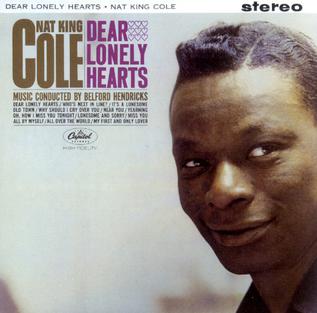
Dear Lonely Hearts is a 1962 studio album by Nat King Cole, arranged by Belford Hendricks. The title track went to #2 for two weeks on the Easy Listening charts and #13 on the Hot 100. The LP peaked at #24 on the Billboard album chart.

"I Surrender Dear" is a song composed by Harry Barris with lyrics by Gordon Clifford, first performed by Gus Arnheim and His Cocoanut Grove Orchestra with Bing Crosby in 1931, which became his first solo hit. This is the song that caught the attention of William Paley, president of CBS, who signed him for $600 a week in the fall of 1931.
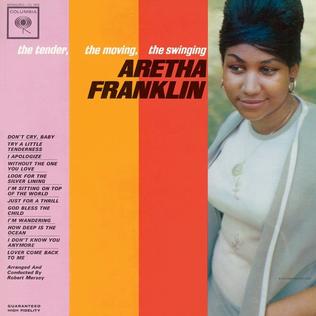
The Tender, the Moving, the Swinging Aretha Franklin is the third studio album by American singer Aretha Franklin, released in 1962 by Columbia Records. It was her first album to achieve any commercial success, reaching number 69 on the Billboard pop album charts. Unlike its predecessor, however, it did not have a hit single. The album was recorded at Columbia Recording Studio, in New York City.
John Leslie McFarland was an American popular music composer and arranger.
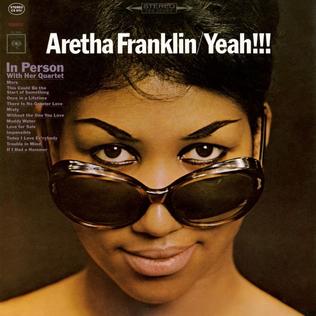
Yeah!!! is the seventh studio album by American singer Aretha Franklin, Released on May 17, 1965 by Columbia Records. Contrary to the overdubbed sounds of audience murmurs, the album was not a live album, but instead was recorded live at New York's Columbia Studios and produced by Clyde Otis. This would be Franklin's last collection of jazz recordings until the release of 1969's Soul '69, released during her landmark tenure at Atlantic Records. An expanded version of the album that also contains the original session tracks without audience overdubs has been released on CD in the Columbia Box Set Take a Look: Aretha Franklin Complete On Columbia.
"Won't Be Long" is a song written by J. Leslie McFarland and performed by Aretha Franklin. The song reached number 7 on the U.S. R&B chart and number 76 on the Billboard Hot 100 in 1961. The song appeared on her 1961 album, Aretha. The song was produced by John Hammond.
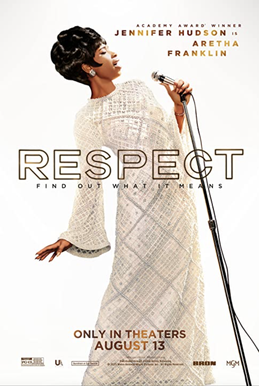
Respect is a 2021 American biographical musical drama film directed by Liesl Tommy, written by Tracey Scott Wilson and Callie Khouri, based on the life of American singer Aretha Franklin. The film stars Jennifer Hudson as Franklin, with Forest Whitaker, Marlon Wayans, Audra McDonald, Marc Maron, Tituss Burgess, and Mary J. Blige in supporting roles. The film follows the first three decades of Franklin's life, from being born as a musical prodigy in an affluent African-American family, the repercussions of losing her mother at age 10 to her arduous rise to international musical stardom, while enduring an abusive marriage, ultimately concluding with the recording of her influential live album Amazing Grace (1972).


















